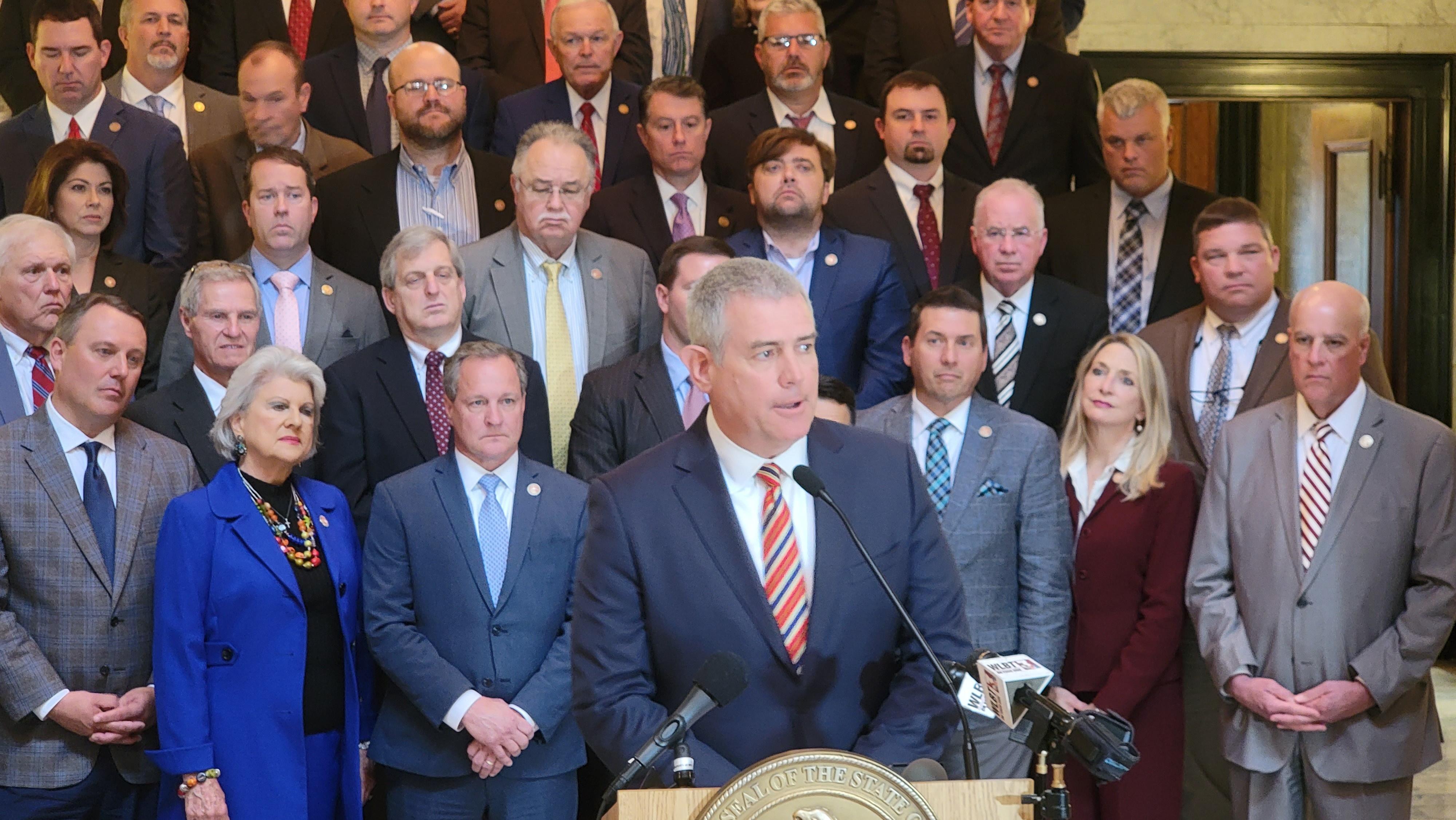The House tax plan has been touted as the only solution to eliminating the income tax in Mississippi, and the original bill would have raised sales taxes to accommodate for losses in other revenue streams. But with deadlines approaching, Ways and Means Chairman Trey Lamar said they have amended their plan to satisfy Senate demands. He says the plan will no longer raise sales tax, and will begin the process of gradually phasing out the income tax.
“It’s going to take some time. The initial cut as I said in this bill is $25,000 and $50,000 for a married couple, and then it will be brought down over a period of years. It could happen as early as 8-10 years, possibly up to 14-15 years just depending on how the economy grows. We take a portion of growth going forward and we use that to cut the income tax.”
The House’s initial plan would have also lowered other taxes such as state car tag fees and grocery taxes. These issues were raised by House Minority Leader Robert Johnson to benefit low-income residents. But he says many of these points were either taken out of the bill or reduced to make up for lost revenue without raising the sales tax.
“They’ve created just a blanket tax cut with this new amendment that essential just creates a $700,000,000 hole that we have to fill every year,” says Rep. Johnson. “So we can’t support a plan like that. And also, when you do a desperate amendment, you end up with something that hasn’t been studied and hasn’t been proven out by any experts so that just doesn’t give us any confidence.”
Senate lawmakers have also passed a tax bill that would eliminate the 4% tax bracket, and lower the 5% bracket over eight years.




